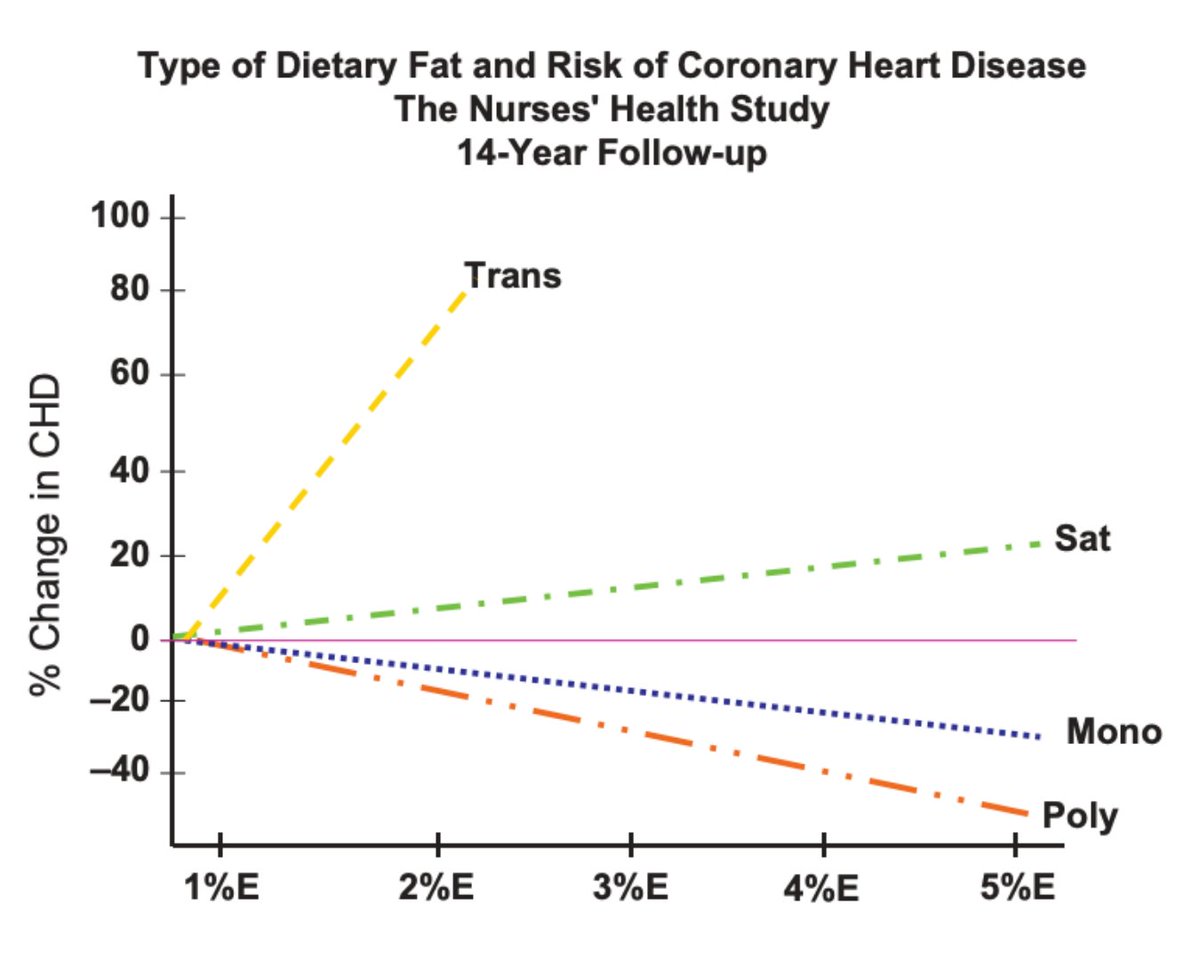
Are vegetable oils “toxic” or “inflammatory”?
Evidence strongly shows the very opposite of this widespread myth.
Thread
Evidence strongly shows the very opposite of this widespread myth.
Thread

Yet despite the constant drumbeat of science showing the healthfulness of “industrial seed oils”, an equally persistent drumbeat from the likes of Mark Hyman and others maligns them.
What is the truth?
What is the truth?

Well, one paper published in the European Journal of Clinical Nutrition in fact showed that olive oil, soy oil, and cod liver oil all decreased some markers of inflammation. pubmed.ncbi.nlm.nih.gov/21326271/ 

And a recent article reviewing all currently available evidence concluded human trials consistently show that omega-6 fatty acids, a constituent in “seed oils” blamed for their supposed ill effects, do not cause inflammation. pubmed.ncbi.nlm.nih.gov/29610056/ 

And some of the highest quality observational evidence shows a dose-response relationship between degree of unsaturation of fatty acids consumed and reduction in heart disease risk. onlinelibrary.wiley.com/doi/10.1111/j.… 

Where do these myths about vegetable oils come from? Well, a few places:
1. The naturalistic fallacy- vegetable oils are “unnatural” and therefore they cannot be healthy, right? But this is a fallacy. Cooking is unnatural. Shoes are unnatural. Toothbrushes are unnatural.
1. The naturalistic fallacy- vegetable oils are “unnatural” and therefore they cannot be healthy, right? But this is a fallacy. Cooking is unnatural. Shoes are unnatural. Toothbrushes are unnatural.
2. Mechanisms governing inflammation- omega-6 fatty acids might to “feed” inflammatory biochemical pathways. However, the clinical trial evidence does not bear these mechanisms out.
3. Other mechanisms such as endothelial dysfunction and oxidation. However, again, these mechanisms are contradicted by the available clinical trial evidence.
What the case of seed oils teaches us is that coming to conclusions based on mechanisms is inappropriate: we need to pay attention to the human evidence.
Now, vegetable oils may increase the calorie density of foods and make it easier to overconsume calories. However, compared to the alternative, such as butter, vegetable oils are much healthier. ncbi.nlm.nih.gov/pmc/articles/P… 

Our recommendation: use oils to the degree that you can keep overall calorie intake low, but definitely use them in place of traditional cooking fats like butter or lard. The science supporting this recommendation to prevent disease is among the strongest we have in nutrition.
• • •
Missing some Tweet in this thread? You can try to
force a refresh



